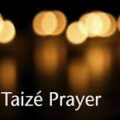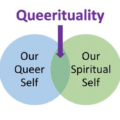A sermon on John 3: 14-21
John 3: 16 “For God so loved the world” may be the most famous passage in Scripture. And as much as I need to know that God loves not just me, but the whole world; and as much as it is a joy to know that Jesus brings eternal life – I can’t help but be a John 3:17 kind of Christian instead.
“Indeed, God did not send the Son into the world to condemn the world, but in order that the world might be saved through him.”
I guess I’m just a little to tired of all the condemnation in the world these days to rest happy in my eternal life. I’ve got to dig deeper. And I realize that too many Christians who get all warm and fuzzy about John 3: 16’s – “whoever believes in [Jesus] may have eternal life” are really quick to condemn anyone who doesn’t believe in the exact same way that they believe. And I’ve read the rest of the passage too many times to be satisfied with that. And then I want to preach a sermon here that condemns them for their wrong way of believing and suddenly we’re not with Jesus saving the world anymore, we’re all on a battle to condemn. And apparently that’s not the way to salvation. Not because I say so, but because Jesus does:
“Indeed, God did not send the Son into the world to condemn the world, but in order that the world might be saved through him.”
It’s not that Jesus never said anything ever that wouldn’t seem to be condemning; but his harshest critiques were not for those the religious authorities would condemn – it was for the religious authorities themselves – the ones he called hypocrites and vipers and fools, for laying burdens on God’s people that they could not carry.
The system of belief was unfair and unyielding and Jesus called out it’s deepest brutalities… in hopes that it would change – that we would change, that we would let the light of the world illuminate the places where sin had set in, so that our whole world could be rescued and redeemed.
And here we are 2000 years later in the same place, called not to condemn one another, but to draw one another to a better way of living, to force each one of us to look upon our own contribution to systems that oppress, and to let the light of Christ burn away the impurities.
To see the full sermon, click here.












